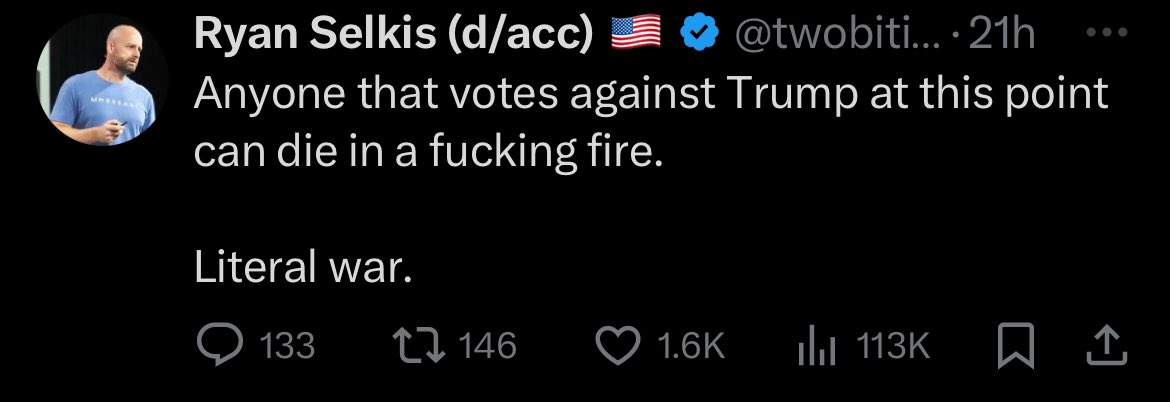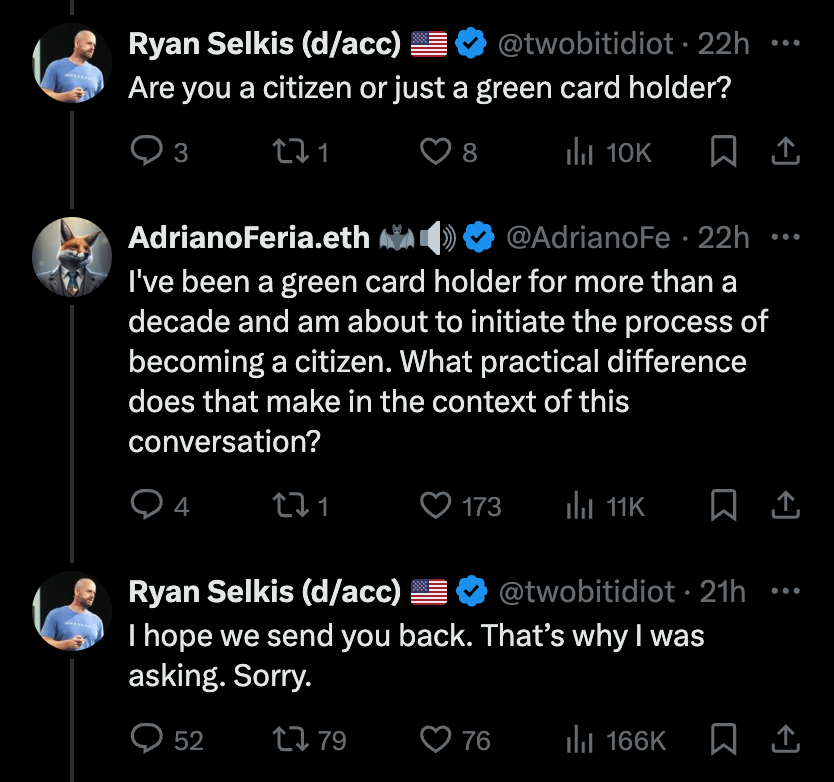The people now in charge of the Office of Personnel Management apparently don’t know how to scrub PDF metadata, and have exposed the original authors of the guidance they’re publishing. Two, Noah Peters and James Sherk, have links to the Heritage Foundation and Project 2025.
Noah Peters is the true author of the OPM Acting Director Charles Ezell’s January 27 memo providing guidance on the Schedule F executive order. Peters also authored the memo exploiting loopholes to bypass limits on political appointments. 



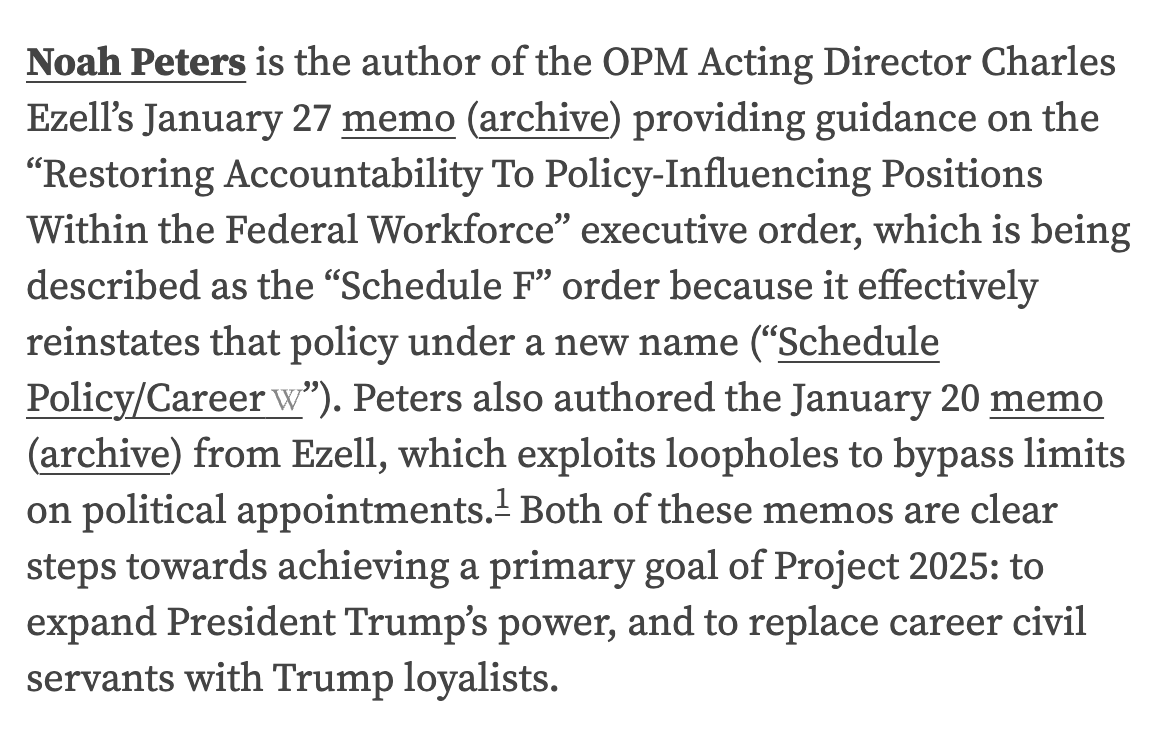



As far as I can tell, Peters’ role has in the administration has not been officially announced. However, as far back as 2023, The Heritage Foundation’s Project 2025 was recommending him for a position in Trump’s second administration. 

James Sherk authored the joint OMB/OPM memo on return to office implementation plans and the joint memo authorizing the federal civilian hiring freeze. 



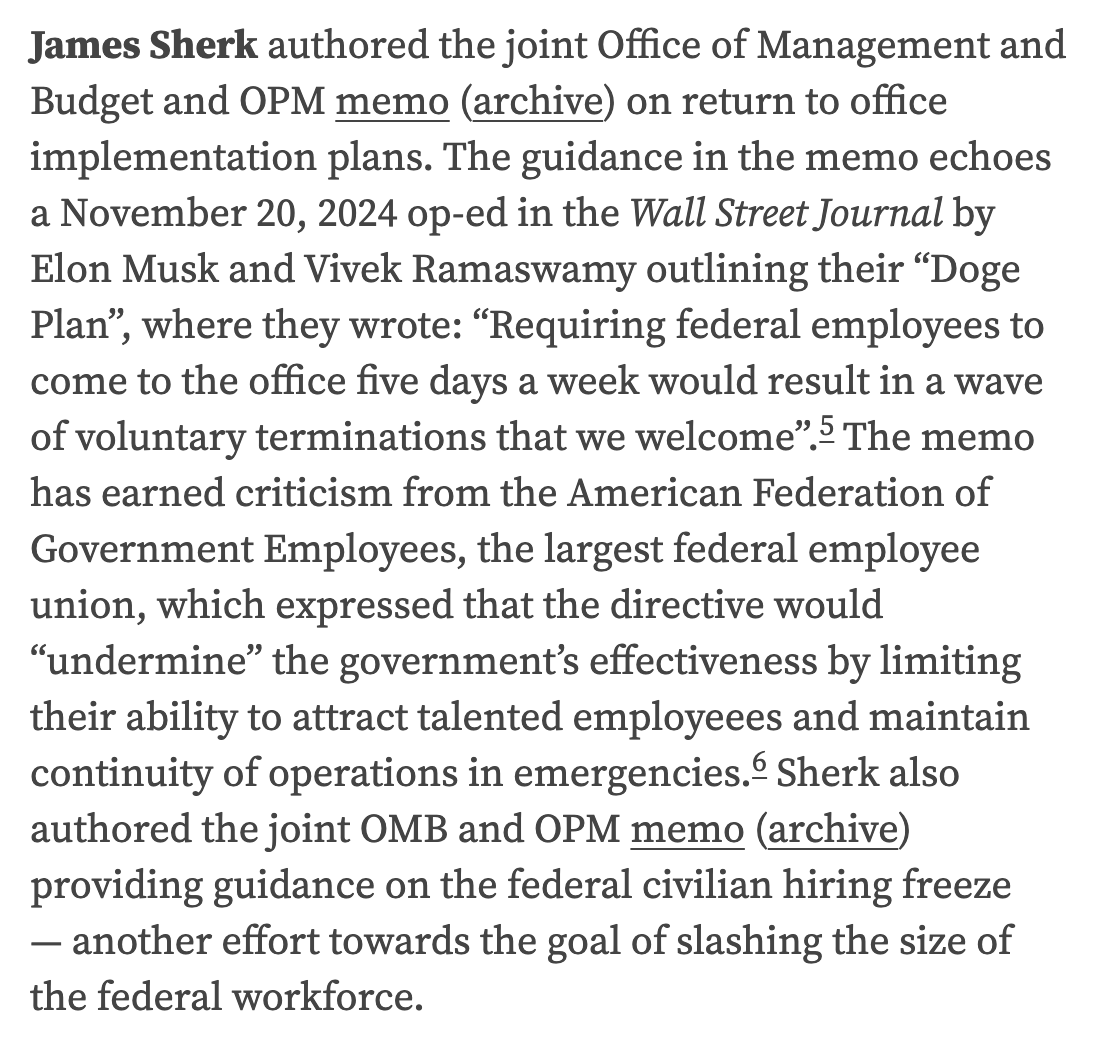
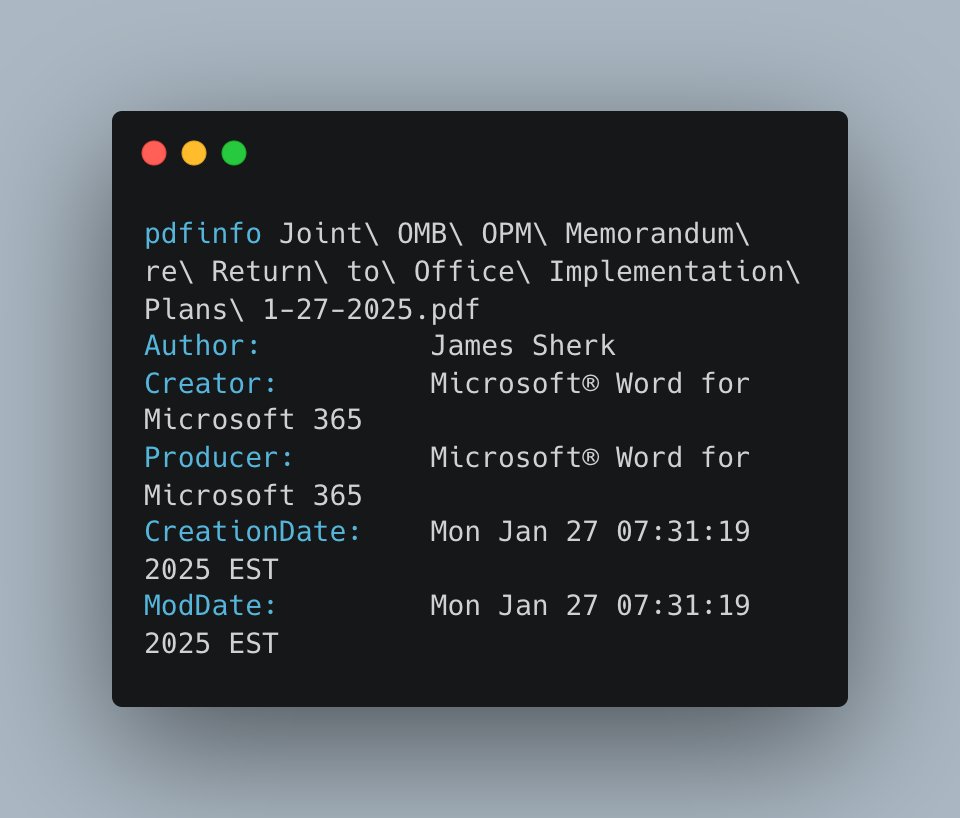
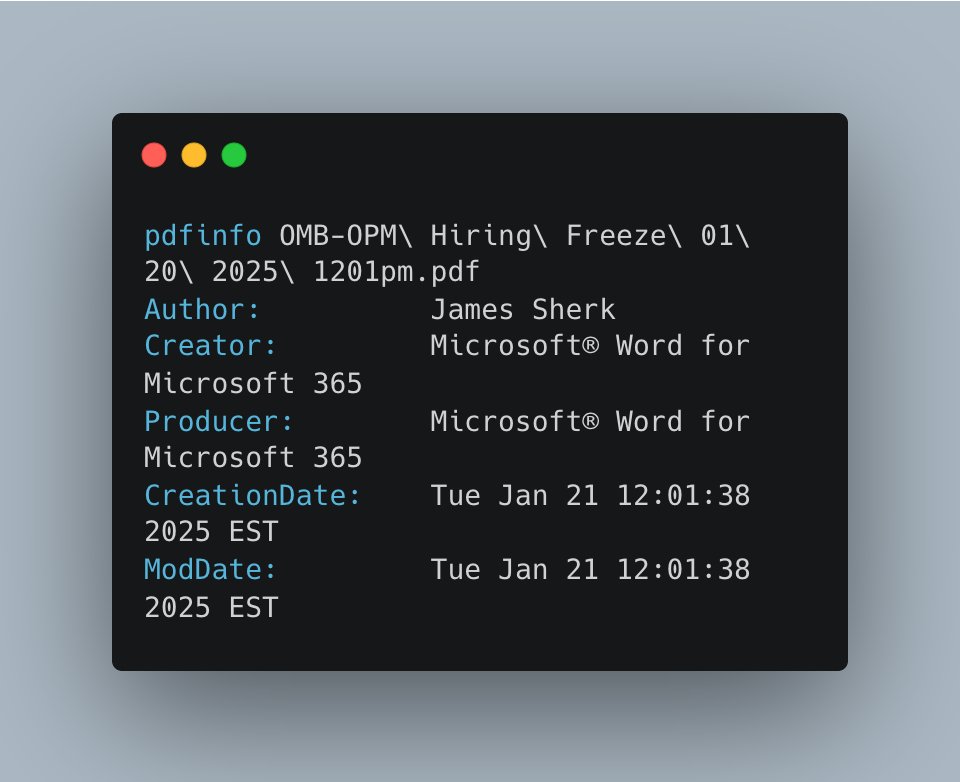

Trump has denied or downplayed links to Project 2025. These documents show that implementation is well underway, with designated personnel quietly drafting policies that are being publicly attributed to heads of federal agencies.
mollywhite.net/micro/entry/tr…
mollywhite.net/micro/entry/tr…
Update: The OPM has now scrubbed the PDF metadata. However, the archived copies linked from my website contain the original metadata if you wish to verify.
• • •
Missing some Tweet in this thread? You can try to
force a refresh

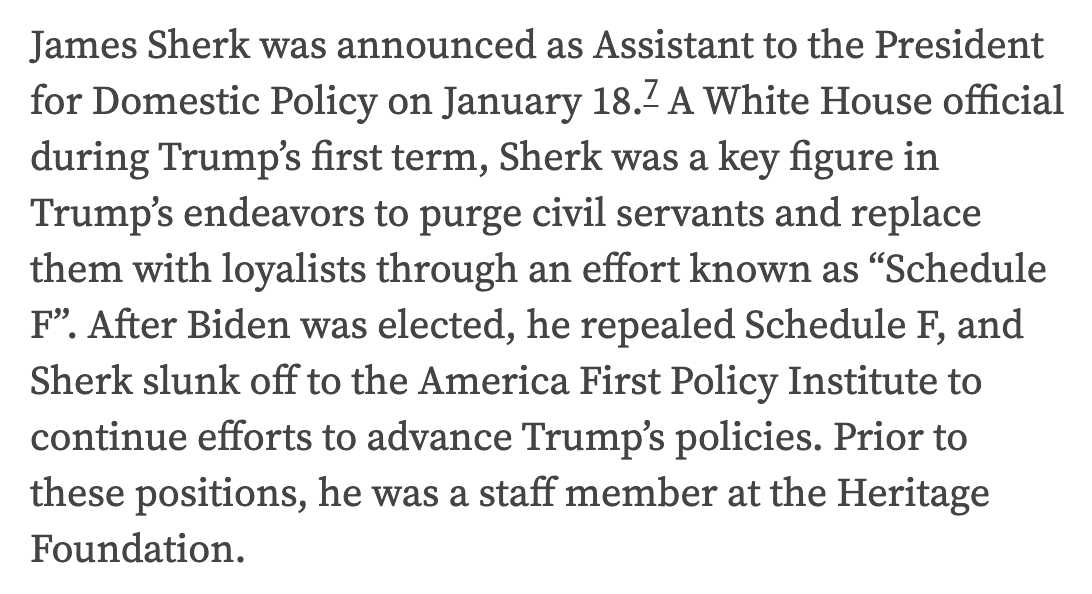

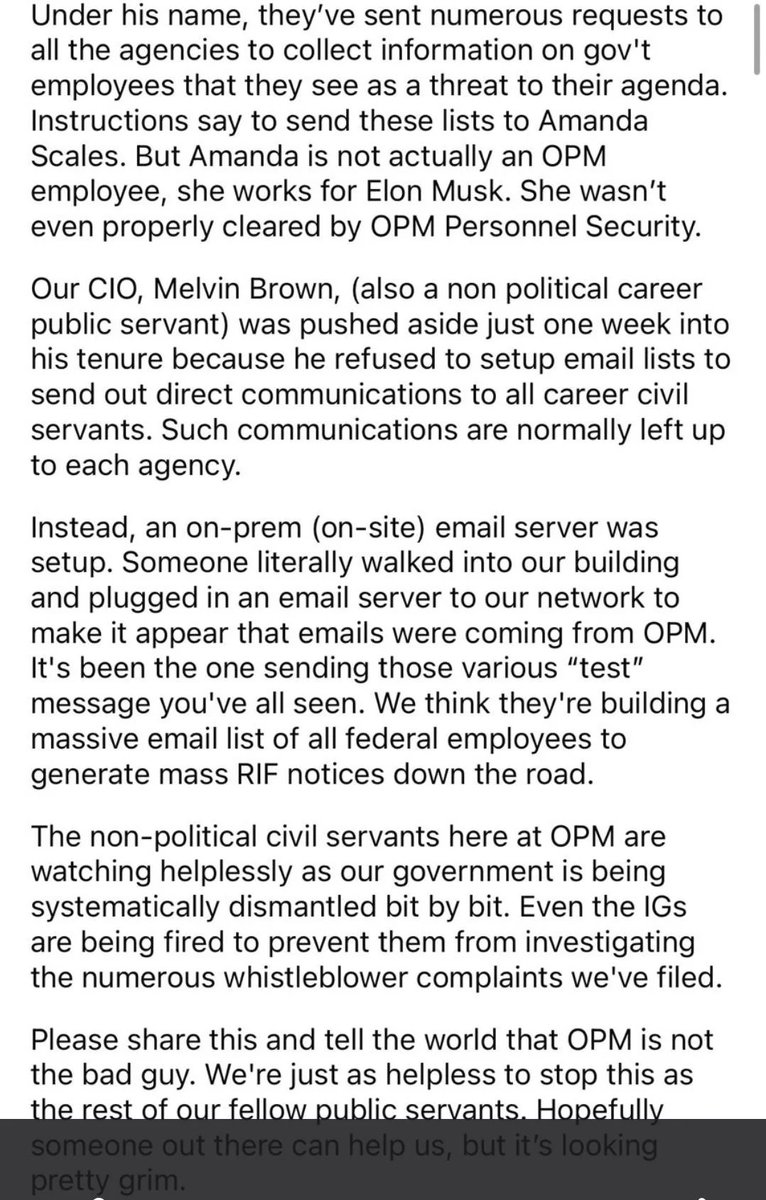








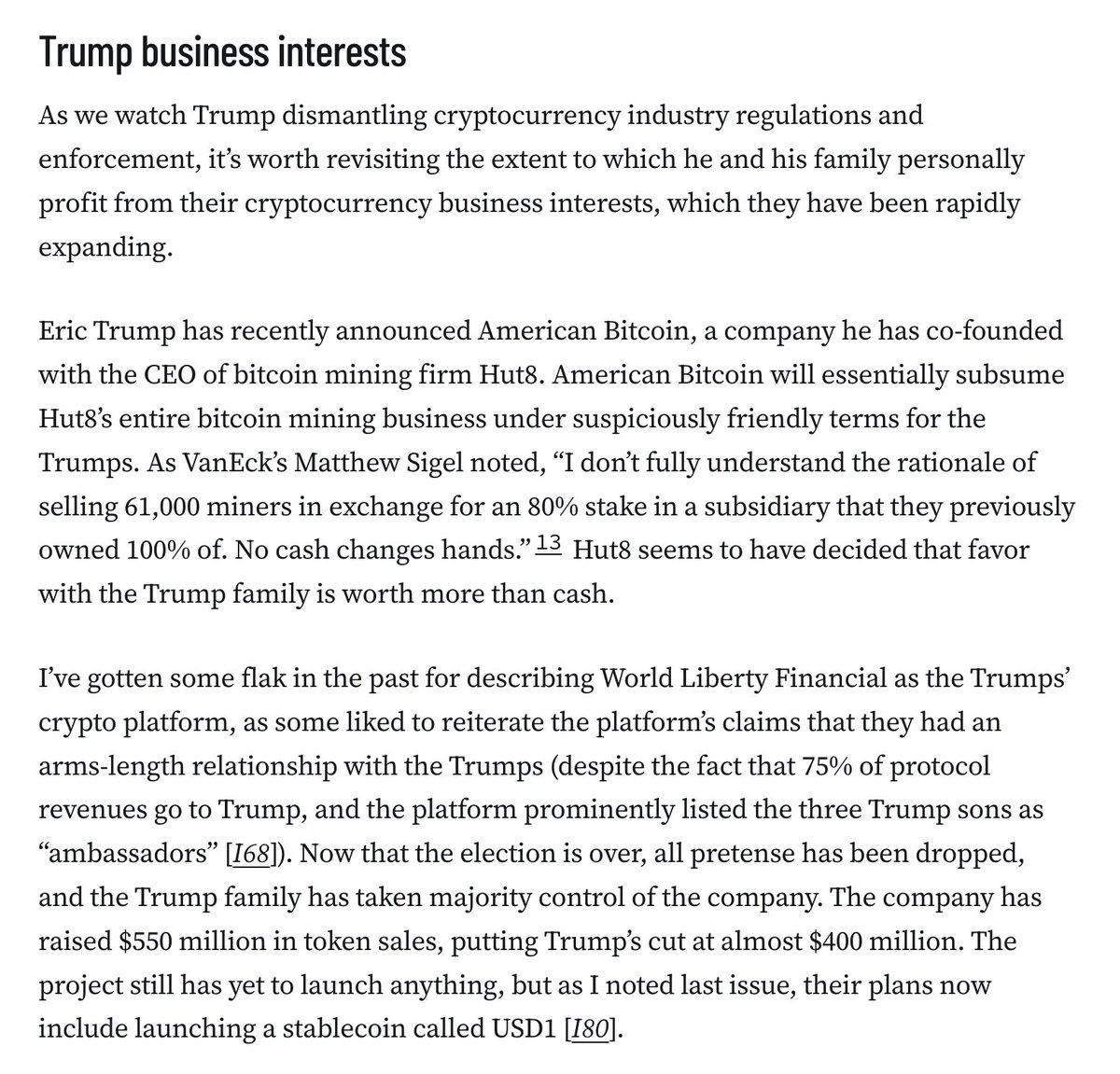
![Then there’s Trump Media, the firm behind the Truth Social platform, which has recently filed documents disclosing plans to explore something called Truth.Fi, which will include a crypto component [I80]. Trump’s stake in Trump Media is estimated at around $2 billion, and the company recently submitted filings that would allow the trust holding his shares in the company (controlled by Donald Trump Jr.) to sell them.14 Then there are the memecoins [I75]. Trump has already extracted around $350 million from crypto buyers via his $TRUMP token.15 On April 18, he’ll be allowed to sell off anothe...](https://pbs.twimg.com/media/GoCoWMLXoAE4eZ1.jpg)



![Then, in the early hours of December 31, Musk reposted a video from a self-described “Conspiracy Realist/Coincidence analyser” account, “@BGatesIsaPsycho”, which had in turn taken the video from antisemitic conspiracy theoristc and self-described “OSINT journalis[t] exposing globalism” Ian Carroll. “No more donations to Wikipedia until they start being truthful”, Musk added, atop a video where Carroll claimed that “someone deleted all of Bill Clinton’s connections to Jeffrey Epstein from Wikipedia”, suggesting that Clinton himself was behind the edits. This, again, was a complete misreprese...](https://pbs.twimg.com/media/GgUreSUXYAAU7ih.jpg)


